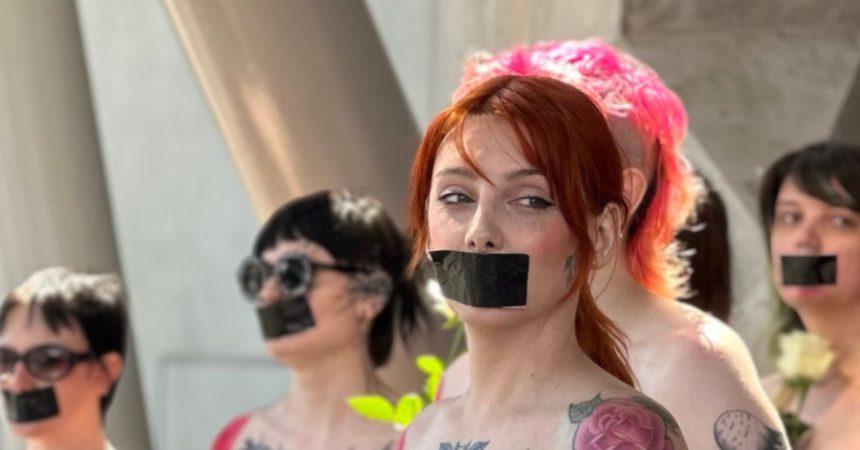On May 17, 2025, the International Day Against Homophobia, Transphobia and Biphobia (IDAHOBIT), a group of trans women chose to stand in front of the Scottish Parliament. Not to demand anything. But to remind us of what is being taken away. The reason: the decision of the UK Supreme Court to strike down part of the Gender Recognition Bill in Scotland, now defining gender as strictly biological.
A body is not just a body
The image of the half-naked bodies with red palms was not a “shock” – it was a conscious symbolic act. The red hands spoke of the blood of trans lives that are crushed daily by state indifference, violence and lack of protection. The black tape on the mouth was a reminder that trans people still have no voice at the political level — or, even worse, they have a voice but no one listens.
The use of a white rose was not accidental: a flower that traditionally symbolizes peace and forgiveness, but here it is transformed into a voice of peaceful resistance and dignity. The half-nakedness was not a provocation. It was transparency. Exposure. Absolute vulnerability in a public space. To show, clearly, who and what are the ones who accept the most violent cuts to rights — in the name of a supposed “neutrality.”
Political consequences, human costs
The Supreme Court’s decision is not just a change in the law. It means that trans women in Scotland could lose access to safe spaces, gender-conforming health services, or even the right to state who they are on official documents. The “biology” argument is back, not to protect, but to erase lived experiences.
Silent but eloquent
The silence of this protest screamed louder than any duduka could. And this is perhaps the most tragic thing: that it takes a half-naked body, a frozen movement, a drop of red paint to force us to look.
The message of the protest was not just for trans rights. It was a message for all of us: that in a democracy, the majority is not enough, we also need to care for minorities. It is not enough to tolerate diversity. We must protect it — by law, by voice, by action.











